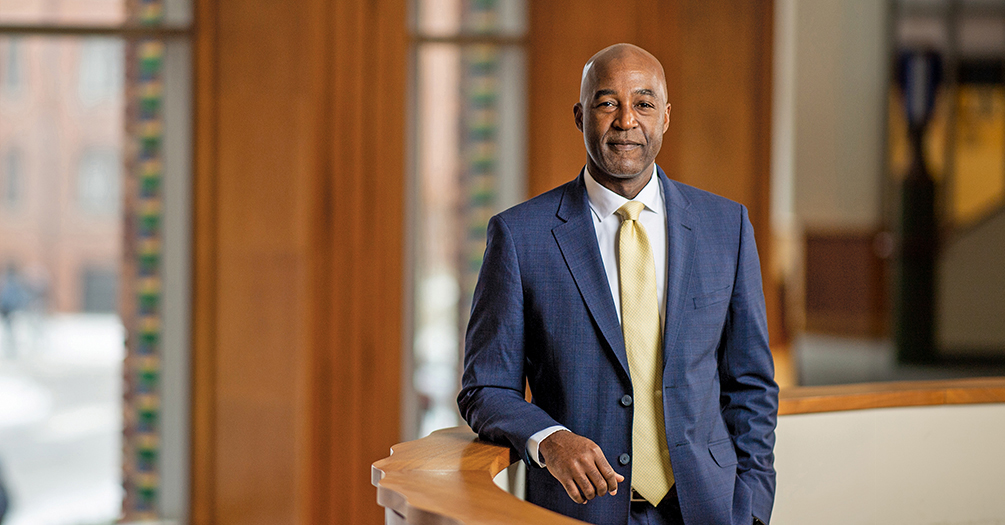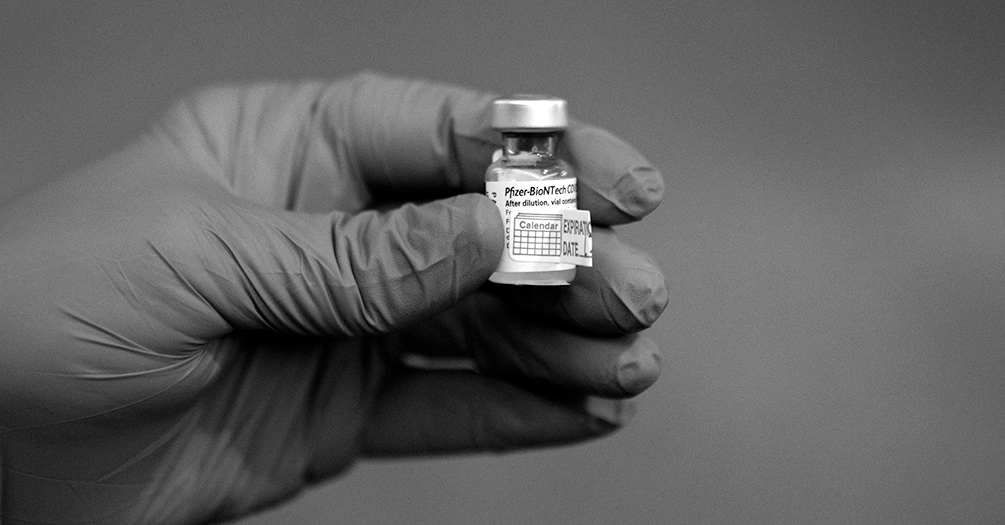A Global Journey for Sustainable Public Health
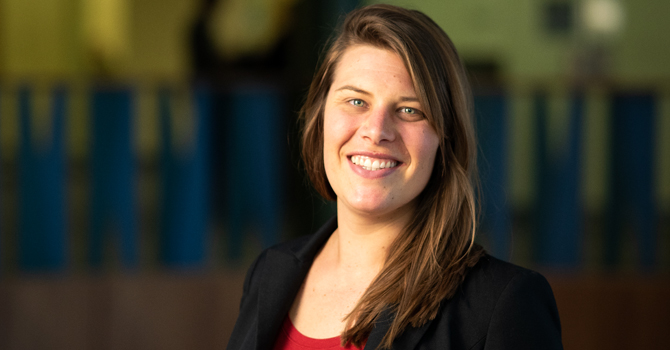
Adriane Kline
Master’s Student in Health Behavior and Health Education, Rachel G. Smylie Memorial Scholar and Gelman Global Scholar
South Africa. My passion for public health began in Cape Town. My undergraduate study abroad program at the University of Cape Town connected our coursework with the economic, social, political, and health implications of the HIV/AIDS epidemic in the local community. I volunteered in Khayelitsha, a township just outside Cape Town.
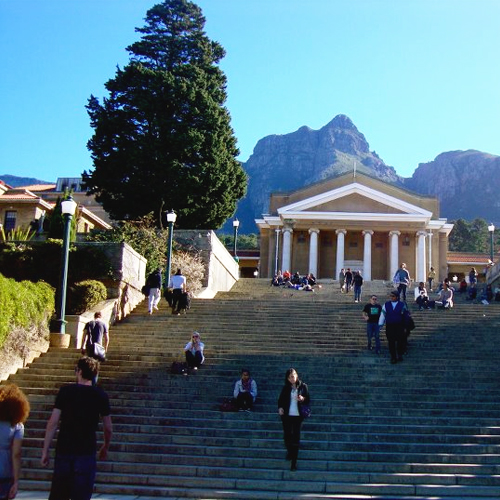
The HIV epidemic creates many local and national challenges in South Africa, from disease burden to financial strain to social stigma. When I returned to Ann Arbor, I conducted an undergraduate honors thesis—advised by Justin Heinze on the Health Behavior and Health Education faculty—examining how adolescents in Flint, Michigan, understand sexually transmitted infections and how their knowledge during adolescence predicts future risk behaviors and correlates with specific health outcomes.
My intense interest in community health, especially reproductive health, led me to another international experience.
Fiji. As a volunteer with the Peace Corps, I was assigned to a remote elementary school on Fiji’s Waya Levu island. I worked on a range of projects in the community, teaching health classes, supporting the local nurse with community health outreach, developing fitness and gardening programs with local leaders, and facilitating professional development for teachers to build capacity. I also worked with local and national leaders on a USAID climate change and water health project to increase clean drinking water storage.
The entire island of Waya Levu is home to about 800 people. It has four villages and no roads, electricity, nor running water. Living in this remote place taught me more than I could ever have imagined about community. In this place, survival is entirely dependent on your neighbors. Everyone works together on every aspect of life. I have never before been a part of such a strong and resilient community.
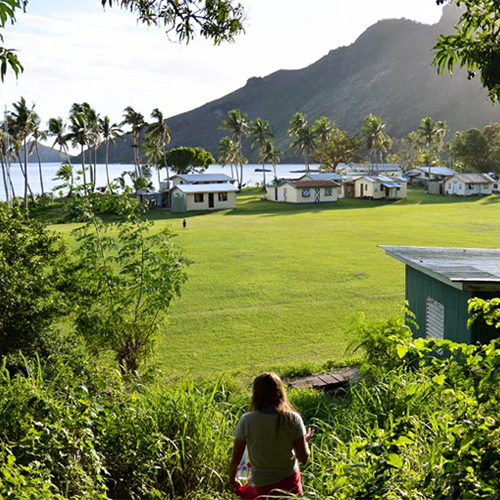
During my time there, Fiji was hit by Cyclone Winston, the most powerful cyclone on record in the Southern Hemisphere. Cyclones are not a novel experience in Fiji, but this particularly catastrophic event had major implications, including increased rates of waterborne diseases infection and domestic violence. Crop destruction made food access a significant problem.
The community’s resilience after losing homes and farms was incredible. Everyone worked together to replant crops and rebuild structures. The experience demonstrated the interconnectedness of climate change and human health.
Ann Arbor. Seeing the broad impacts of seemingly isolated situations or events—HIV in South Africa, a cyclone in Fiji—led me not only to pursue graduate work in public health but to incorporate environmental health as a natural piece of this. Soon after I began my studies at Michigan Public Health, I realized that formal training in sustainability would help me support the health of local communities faced with increasing climate change threats.
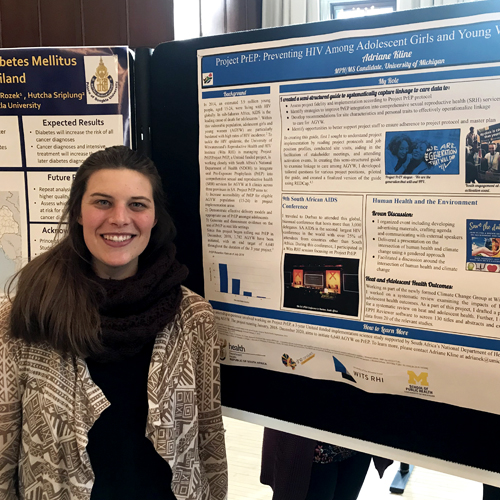
As a dual degree student in the School of Public Health and the School for Environment and Sustainability (SEAS), I am learning to shape my perspectives on community health through a sustainability lens. When environmental systems analysis, environmental policy, and sustainable food systems are part of conversations with local community health stakeholders, more creative and effective solutions to population health problems emerge and human health becomes more sustainable.
Upper Peninsula, Michigan. Last year I was honored to be a Dow Sustainability Fellow. I was part of an interdisciplinary team of five graduate students that partnered with the Western Upper Peninsula Planning and Development Region (WUPPDR) on several sustainable food systems projects.
- We helped design county profiles for all six counties in the western UP highlighting demographics, public health capacity, food resources, institutional factors, and the state of natural and built environments. These county data profiles are meant to inform applications for sustainable food systems grants that support agriculture and food access across the region.
- We helped create a template for local communities to incorporate food systems planning into their broader master plans.
- We helped develop a policy resource to assist local planners in navigating local food systems policy—a catalogue of existing policy examples implemented across the state and country that support production, processing, distribution, retailing, eating, and waste management.
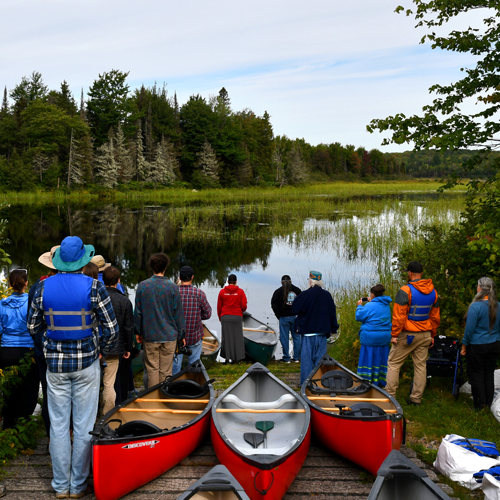
We also spent a week in Baraga at the Keweenaw Bay Indian Community Wild Rice Camp, where we learned more about local food contexts and how wild rice harvesting, planting, and cooking is part of a sustainable future for the UP.
Back to South Africa. Last summer, my public health internship—funded by the Office of Global Public Health (OGPH)—took me back to South Africa, where I worked on an HIV prevention project in Johannesburg called Project PrEP. This outreach initiative aims to increase accessibility and uptake of the HIV prevention medication PrEP for adolescent girls and young women.
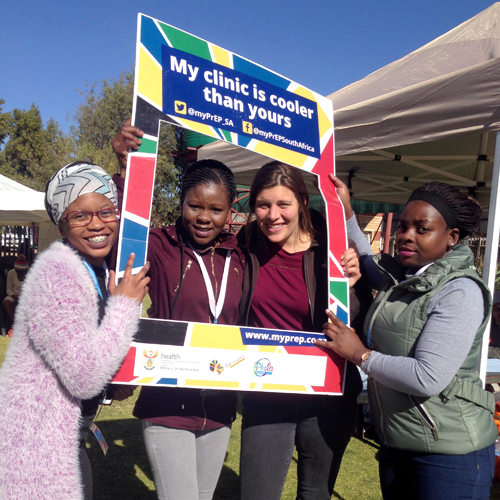
As part of a project team at the University of Witwatersrand’s Reproductive Health and HIV Institute, I also worked at the intersection of environmental and human health work, joining a study investigating connections between rainfall data and HIV incidence in Lesotho. Preliminary analyses demonstrate an association between drought, violence, and HIV rates among women due to power dynamics, desperation, and migration.
Back to Fiji. My current research is based in Fiji—in the community of Yalobi on Waya Levu Island where I served in the Peace Corps. Due to the coronavirus pandemic, I have been unable to travel to Fiji, so I am collecting data using online tools and conducting semi-structured phone interviews. The project aims to understand the impacts of climate change on health and livelihood for women living in rural Fiji.
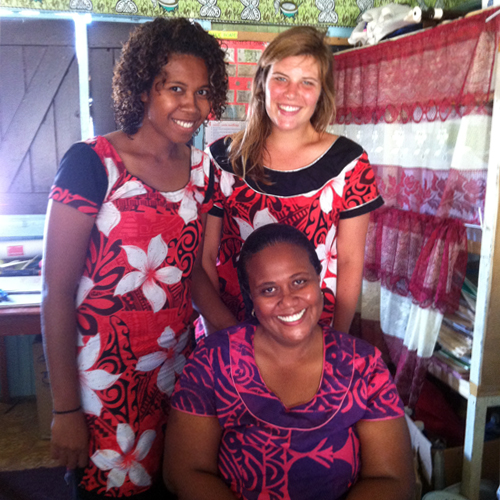
Social norms, local policy, and community health are all connected to our physical climates, and with open-minded and engaged support—including from public health researchers and practitioners—we can find and maintain long-term, sustainable, health-oriented practices. As a dual degree student, every insight I can gain about holistic approaches to sustainable health will guide me well as I endeavor to serve the public’s health here in Michigan and well beyond.
- Interested in public health? Learn more here.
- Read more stories about Michigan Public Health students.
- Support research and engaged learning at the School of Public Health.
Read More Stories from the Spring 2021 Issue of Findings


